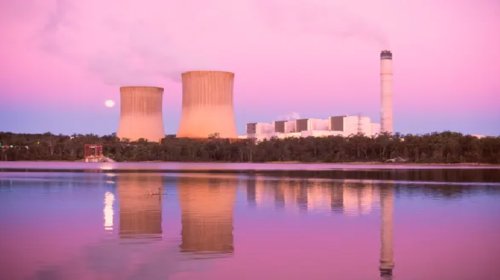Queensland’s energy minister has declared that none of the state’s eight coal-fired power stations will be closed as part of its 10-year energy transition plan, raising doubts about the government’s climate change and energy targets.
Mick de Brenni said later this year he would present a plan to generate 50% of the state’s electricity from renewable energy sources, cut carbon emissions by 30% by 2030 and achieve net zero by 2050. However, there are questions about those targets after he added that eight existing coal-fired power plants would remain open.
“First, to make this really clear that as part of our vision for the future, it does not include closing down any of our coal-fired power stations,” de Brenni told a Committee for Economic Development of Australia (Ceda) lunch in Brisbane on Wednesday.
They will continue to play a significant role in our electricity system going forward. “We have a great assemblance of skills and resources, and important connections throughout the distribution, the transmission network. “Those power stations serve as great opportunities for us to modernise the electricity system to invest into those communities, so I think there will be a real vibrance across regional Queensland because of the investment we will make.”
The minister said the government would “continue to support” the coal and gas industries, as a regulator and a “market participant”. Queensland produced almost one-third of Australia’s 315m tonnes of carbon dioxide equivalent in 2020-21, according to the Clean Energy Regulator (CER). Almost half the state’s emissions came from coal-fired power plants, with other major sources including coalmining and oil and gas extraction.
The CER also listed three Queensland generators – Stanwell Coporation, CS Energy and OzGen Holdings – among Australia’s top 10 emitters in 2021-22. University of Queensland economist Associate Prof Ian MacKenzie said de Brenni’s comments weren’t based on sound economics or ethics.
De Brenni said he would also delay the release of the energy plan until the third quarter of 2022 due to the federal election. “We’ve seen some other energy plans released by other levels of government that I think we all thought left a little bit to be desired,” he said.
“We don’t want to do that here in Queensland, as we’ve taken the time to properly consult and we also thought it was fair for the citizens of this state, and the taxpayers of this state, and those that want to invest in Queensland, they actually see what came forward during the federal election.”
MacKenzie said a further delay was significant because the government only had eight years until 2030. He said the industry, investors, consumers and the general population all needed certainty about the energy transition and climate action as soon as possible.
“If the government keeps kicking the can down the road, you’re going to end up with a lot of unhappy citizens and a lot of unhappy industry stakeholders because they just don’t know what’s going on,” MacKenzie said.







